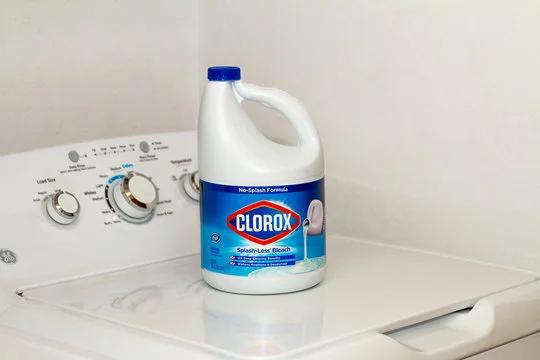As bed bug infestations continue to vex homeowners, the search for accessible and cost-effective solutions remains relentless. Among the many claims circulating, the use of household staples like vinegar and bleach as bed bug egg assassins stands out.
But do these readily available substances truly possess the power to exterminate these resilient eggs?
To determine whether or not vinegar and bleach are safe and effective ways to get rid of bed bug eggs, we'll be conducting a scientific investigation to separate fact from fiction.
How Effective Are Vinegar and Bleach Against Bed Bug Eggs?
When dealing with the persistent nuisance of bed bugs, homeowners often explore various remedies to combat these resilient pests effectively.
Two commonly discussed options are vinegar and bleach. But how effective are they when it comes to eliminating adult bed bugs and their eggs?
Bleach is a potent disinfectant known for its germ-killing properties. However, it's not as effective against bed bugs, especially their eggs.
While it can eliminate adult bed bugs on contact, its ability to penetrate the protective shell of bed bug eggs is limited, making it less reliable in eradicating the entire infestation.

Vinegar, particularly white vinegar, is another household remedy often considered for bed bug control. Like bleach, vinegar's efficacy against bed bugs is somewhat limited.
It can kill adult bed bugs upon direct contact but may not effectively eliminate their eggs or provide long-lasting protection against future infestations.

Locating Bed Bug Eggs: Where to Look
Successfully dealing with a bed bug infestation starts with knowing where to find their eggs. These tiny, oval-shaped eggs are often well-hidden, making detection challenging. Understanding their common hiding spots is crucial.
Bed bug eggs are typically laid close to their primary food source – humans. Inspect mattress seams, creases, and folds, as these are prime locations for eggs. Additionally, check box springs, headboards, and nearby furniture, as bed bugs often hide in these areas.
Remember to examine cracks and crevices in walls, baseboards, and electrical outlets, as bed bugs may deposit eggs. Regular, thorough inspections are key to identifying and eliminating bed bug eggs before they hatch and worsen the infestation.
Using Bleach to Kill Bed Bug Eggs
Bleach can be an option for addressing bed bug eggs, although it's important to note that it may not be as effective as other treatments. Here's a method on how to use bleach to target bed bug eggs:
Gather Your Supplies
Begin by collecting the necessary items for this bed bug egg elimination process. You'll need bleach (sodium hypochlorite solution), water, and a spray bottle.
Dilute the Bleach
Create a powerful yet safe solution by mixing one part bleach with two parts water. For example, if you have one cup of bleach, add two cups of water to dilute it properly.
Prepare the Area
Ensure the room is well-ventilated and cover nearby furniture and surfaces to protect them from potential bleach splatter.
Identify Infested Areas
Inspect your mattress, bed frame, and surrounding furniture thoroughly. Focus on seams and crevices where bed bug eggs are likely to hide.
Fill the Spray Bottle
Pour the diluted bleach solution into a spray bottle, which will be used to apply the treatment.
Apply the Solution
Direct the spray bottle's nozzle into cracks, seams, and other potential hiding spots. Ensure the affected areas are thoroughly wet, avoiding excessive saturation.
Allow Drying Time
Let the treated areas air dry. The bleach residue will continue, eliminating any remaining bed bug eggs. Patience during this drying period is crucial.
Repeat if Necessary
If the bed bug infestation persists, consider repeating the process after a few days. Regular monitoring is essential to catch any newly laid eggs.
Exercise Caution
During the application, wear protective gear, such as gloves and a mask, to minimize direct contact with bleach. Keep pets and children away from the treated areas until completely dry.
Preventive Measures
Adopt good hygiene practices to prevent future infestations. Wash and dry bedding, curtains, and clothing regularly. Regularly vacuum and clean your living space to discourage bed bugs from returning.
Using Vinegar to Kill Bed Bug Eggs
Vinegar is a household item that some people consider for addressing bed bug eggs, although its effectiveness may be limited. Here's a method on how to use vinegar to target bed bug eggs:
Gather Your Supplies
Begin by collecting the necessary items for this natural bed bug egg elimination method - white vinegar, water, and a spray bottle.
Create the Vinegar Solution
Mix equal parts white vinegar and water to form a potent yet safe solution. For instance, if you have one cup of vinegar, add one cup of water.
Prepare the Infested Area
Ensure the room is well-ventilated and clutter-free. Cover nearby furniture to shield them from the vinegar solution.
Identify Bed Bug Egg Locations
Inspect your mattress, bed frame, and nearby furniture for bed bug eggs, focusing on seams, cracks, and crevices where they often hide.
Load the Spray Bottle
Fill the spray bottle with the vinegar solution. This will be your tool to target and treat specific areas affected by bed bug eggs.
Apply the Vinegar Solution
Direct the spray nozzle into seams, cracks, and suspected hiding spots, ensuring thorough coverage without oversaturating the surfaces.
Allow Drying Time
Let the treated areas air dry. The acidity of the vinegar will work to disrupt and eliminate bed bug eggs during this drying period.
Repeat if Needed
If the bed bug infestation persists, consider repeating the process after a few days. Regular monitoring is crucial to catch any newly laid eggs.
Exercise Caution
Vinegar has a strong smell, so ensure proper ventilation during and after the treatment. Take care not to stain fabrics or surfaces with the vinegar solution.
Implement Preventive Measures
Wash and dry bedding, curtains, and clothing regularly. Vacuum and clean your living space frequently to prevent re-infestation.
Final Thoughts
In Final words, while vinegar and bleach may offer the potential for addressing bed bug eggs, their effectiveness can be limited. Bed bugs are notoriously resilient; these household solutions may not reach all hidden eggs or provide lasting protection.
For severe infestations or persistent issues, it's advisable to consult a professional pest control service. Combining these household remedies with other proven methods can enhance your chances of effectively managing bed bug infestations.
Frequently Asked Questions
About Qasim Naseem
Qasim Naseen is the innovative mind behind NastyPest, a renowned platform dedicated to offering comprehensive solutions in pest control. With a passion for creating pest-free environments, Qasim utilizes his expertise to provide valuable insights and strategies for individuals seeking to combat pests effectively. Through NastyPest, he endeavors to empower others with the knowledge and tools necessary to achieve a pest-free lifestyle.
